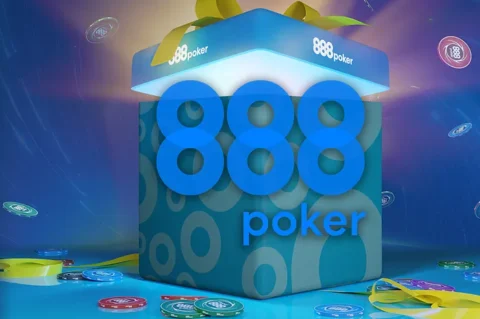Poker’s charm lies in its blend of strategy, psychology, and luck, but there is an overlooked ingredient to the game: math. Understanding core mathematical concepts is vital for players who wish to navigate pot odds and build a winning strategy. For the casual player, just learning the core rules and leaving everything to chance may be enough. But for those of you who want to arm themselves with a strategic edge in the game, read on.
The beauty of math is its universality. Whilst psychological strategies and rules may vary, depending on the poker variant being played, these mathematical concepts should give you an edge in any game. Whether you’re in Texas playing a hand in a brick-and-mortar casino, or exploring the secure online poker Florida has on offer, the core math stays the same, and it is well worth learning.
Probability and Expected Value:
The foundation of poker math rests on the concept of probability. Every decision a player makes revolves around assessing the odds – the likelihood of an event occurring. This involves calculating the probability of completing a hand, drawing an “out card” (a card that improves their hand), or even gauging the chance of their opponent holding a stronger hand. Armed with this knowledge, players can calculate their “outs,” the number of cards in the deck that can improve their hand to a winning position.
Building upon probability is the concept of Expected Value (EV). EV represents the average profit or loss a player can expect from a specific action over a long period. By calculating the EV for decisions like calling a bet, raising, or folding, players can determine if a particular play is mathematically sound. For example, if calling a bet offers a higher chance of winning the pot compared to the cost of the call, it has a positive EV and should be considered a profitable move.
Pot Odds:
Next comes the crucial concept of pot odds. This calculation compares the size of a bet to the total pot amount. Players use pot odds to determine if calling a bet is mathematically justifiable, considering the potential upside of winning the pot versus the downside of losing the call amount. Let’s say you have a pot holding $100, and an opponent bets $20. The pot odds are 5:1 (100 / 20), meaning the player needs their hand to have a 20% chance of winning (1 / (5 + 1)) for calling to be a profitable play in the long run.
However, pot odds only paint part of the picture. If the pot is still $100, but your opponent bets a hefty $75, the pot odds become a less attractive 4:3. Here, you’d need a much higher chance, around 37.5% (1 / (4 + 1)), to win for calling to be mathematically sound. But what if you suspect your opponent is bluffing with a weak hand? Pot odds can be a powerful tool, but it’s crucial to consider them alongside your read on your opponent and the potential for implied odds – the additional money you might win after the flop or turn if your hand improves. By combining pot odds with other factors, players can make more informed decisions about calling, folding, or even raising to maximize their expected value over the long term.
Equity:
While pot odds focus on the immediate cost of calling, equity takes a broader view. It refers to the percentage chance a player has of winning at showdown, considering all possible community cards (flop, turn, and river) that could be revealed. Calculating equity allows players to assess the true strength of their hand relative to their opponent’s possible holdings. This information is crucial for making informed decisions about betting, raising, or calling. While calculating precise equity figures can be complex, poker software and simplified methods exist to provide a good approximation.
Beyond the Basics:
For players seeking to refine their edge further, venturing into more advanced concepts like implied odds and game theory optimal (GTO) play can be particularly beneficial. Implied odds consider the additional money a player expects to win after the flop or turn if their hand improves, even if the pot odds on the current street (pre-flop, flop, turn, or river) don’t justify calling. Imagine holding a strong draw (needing just one card to complete a powerful hand). Calling a bet on the flop might have negative pot odds based on the current pot size, but the potential to win a much larger pot later justifies the initial investment.
GTO play takes things a step further. It involves utilizing a mathematically sound strategy that considers all possible opponent actions, making it difficult for opponents to exploit weaknesses. While achieving true GTO play is highly complex, understanding the core principles can help players develop a more well-rounded and unpredictable approach at the table.
Balancing the Equation:
It’s important to remember that math is just one piece of the intricate poker puzzle. Successful players understand that factors like opponent tendencies, table dynamics, and reading also play a crucial role. A skilled player might choose to deviate from a mathematically optimal play based on a hunch about their opponent’s behavior or a specific situation at the table. Math empowers players to make informed decisions but shouldn’t dictate them rigidly. A good poker player uses math as a foundation for strategy but adjusts their approach based on the ever-changing variables at the table.
Resources for Mathematical Poker:
For players seeking to hone their mathematical skills, numerous resources are available. Before you begin playing yourself, you could try watching the games online and try and calculate along. Poker books and online articles delve deeper into specific concepts like pot odds and equity calculation. Free online tools and poker software can simplify calculations and provide real-time feedback on decisions made at the table. But the best resource is practice. Whether you’re playing on your favorite anonymous casinos, enjoying a hand with your friends and family at home, or have ventured out to a brick-and-mortar casino to enjoy the atmosphere and thrill with other enthusiasts, you can be honing your newfound mathematics skills.














